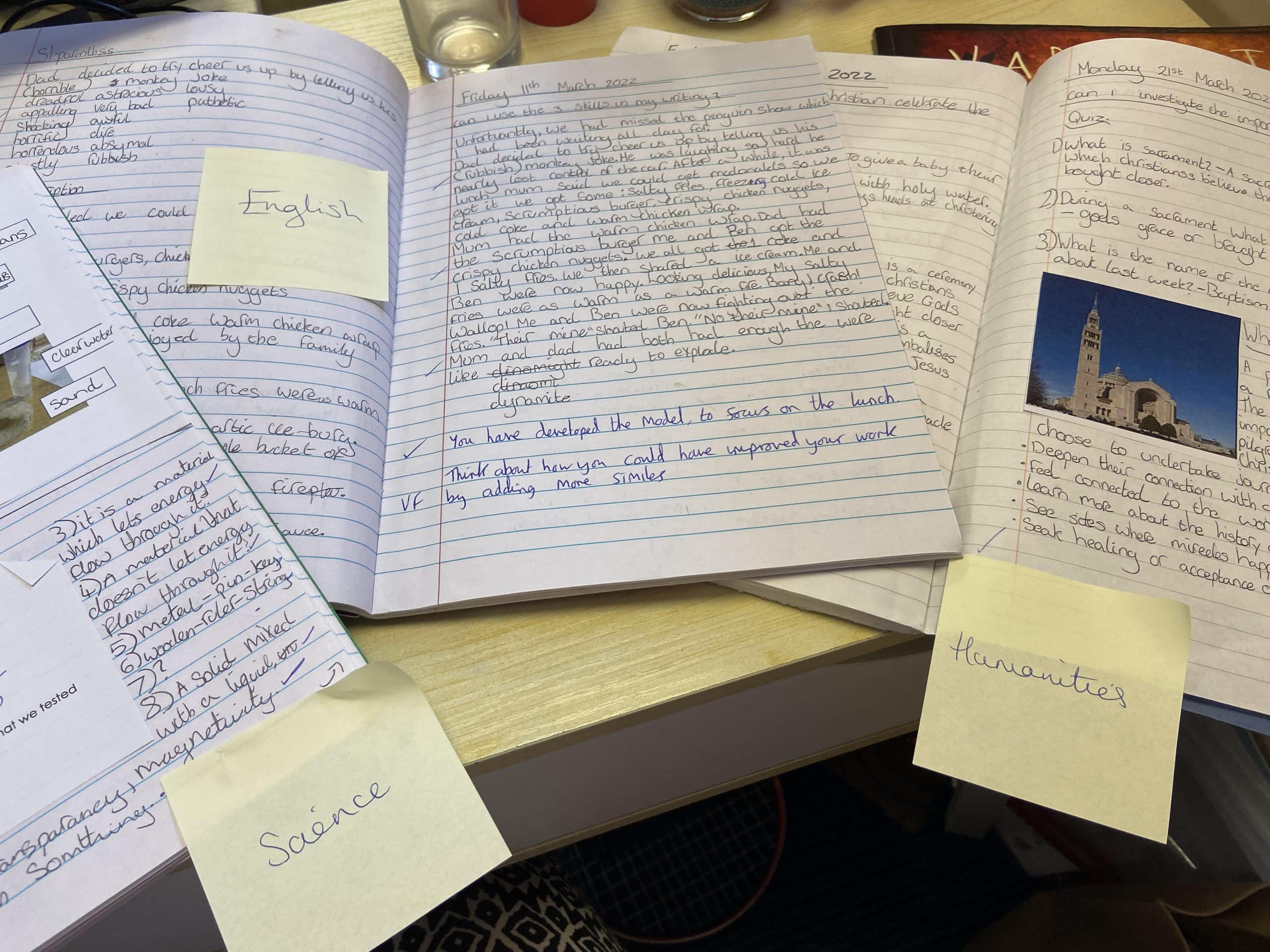My project was focused on improving writing standards across the curriculum, looking at how to improve the standard in non-English subjects so that it is on par with the writing produced in English lessons and English books. The project aimed to support staff in delivering foundation and Science lessons with a strong writing focus in order to achieve the same standard as seen in English lessons. Resources helped to support learning in class and were used as part of specific language focused interventions which were delivered by LSAs. We worked hard to promote best writing in ALL subjects, not just in English.
Our Approach
#389 Improving the Standard of Writing in non-English Subjects – Cliff Lane Primary
Helen Leeks
What did we do?
“I can see a real improvement in the language the students are using now, they have improved their spelling and use their topic words more confidently now.”
A LSA who delivered interventions.
Summary of impact
The resources that we purchased were a great support to children and helped to support LSA’s delivering specific interventions linked to the project. I also believe I was successful in supporting staff in finding the time to develop good quality writing in non-English lessons, encouraging them to spend just 5 minutes at the start of the lesson to edit work and talk to children about the importance of always producing their best writing. The staff and pupils surveys have shown me that this is the case. As a result, the quality of writing produced in non-English lessons has improved and I would say is mostly on par with the standard in English books – which was the aim.
Steps taken
I began implementing my project by asking staff for feedback about writing across the curriculum, from there I delivered a staff meeting to introduce the project and the aims. I worked closely with LSAs who were asked to deliver specific language focused interventions. I ordered resources as set out in the Action Plan and supported staff in using these how I intended.
What would we do differently
I found it useful to keep referring back to the Evaluation Milestones document as it helped to keep me focused each term and achieve small goals along the way.
I would have liked to have had more time to observe the non-English lessons to see the writing taking shape rather than just looking at the books but this wasn’t always possible as they are afternoon lessons and I was mostly only released in the mornings. I think this would have been interesting as I could have seen how the teachers were engaging pupils.
Cost
- Further ‘The Write Stuff’ resources ordered – yearly subscription (£149.99); teacher books for KS2 teachers (£209.84); The Spelling Book (£19.99) and Sentence Maker Kit (£33.59).
- Paid 8.30am-1.30pm LSAs to stay and deliver additional interventions during the pm sessions (Science, History, Geography, RE), with a particular focus on EAL and developing topic vocabulary (Approx. £600-£900 – 2hrs p/w X 24wks X £14-£18 p/h).
- SPaG resources – CGP books (£25-£30); Spelling rule sets TTS (£70.99).
- Covered subject leads whilst they plan and support staff within their subject area following my guidance (Approx. £200-£300).
- Bought special handwriting pens TTS (Berol – £145.50).
Feedback from Practitioners
I have conducted staff surveys at three points during the course of the project and feedback has been positive. Staff recognised the need for the project to be put in place and have shown good buy-in. The final survey shows me that they feel it has been successful, one teacher was quoted as saying, “I feel like the children see those subjects as more equal to English now. They actually care about their writing more often than not now.” An LSA who delivered interventions said, “I can see a real improvement in the language the students are using now, they have improved their spelling and use their topic words more confidently now.”

Contacts
Helen Leeks
Class Teacher and English Lead
